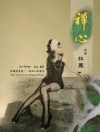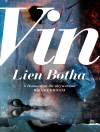Kagawa Toyohiko was one of the best-known evangelists and social reformers of the twentieth century. Founder of several religious, educational, social welfare, medical, financial, labor, and agricultural cooperatives, he was nominated twice for the Nobel Prize in Literature (1947 and 1948), and four times for the Nobel Peace Prize (1954, 1955, 1956, and 1960).
Appealing to the masses who had little knowledge of Christianity, Kagawa believed that a positive interpretation of nature was a key missiological issue in Japan. He reasoned that a faith, which is rooted in the ‘downward movement’ of Christ’s incarnation, must support the scientific quest and meditate on the purpose or ‘upward movement’ implicit in scientific findings. Through an anti-reductionist methodological pluralism that strives to ‘sees all things whole, ‘ this ‘scientific mystic’ employed a wide range of Japanese and Western cultural resources to assert a complementary role for science and religion in modern society.
Giới thiệu về tác giả
Thomas John Hastings is Executive Director of the Overseas Ministries Study Center and Administrative Faculty at Princeton Theological Seminary, and Editor of the International Bulletin of Mission Research (SAGE). He is the author of Worshiping, Witnessing, and Wondering: Christian Wisdom for Participation in the Mission of God (Cascade, 2022), Seeing All Things Whole: The Scientific Mysticism and Art of Kagawa Toyohiko, 1888-1960 (Pickwick, 2015), and Practical Theology and the One Body of Christ: Toward a Missional-Ecumenical Model (Eerdmans, 2007), translator of Kagawa Toyohiko, A Few Words in the Dark: Selected Meditations (Bridges to Peace, 2015), and editor of the translation of Kagawa Toyohiko, Cosmic Purpose (Cascade, 2014).












